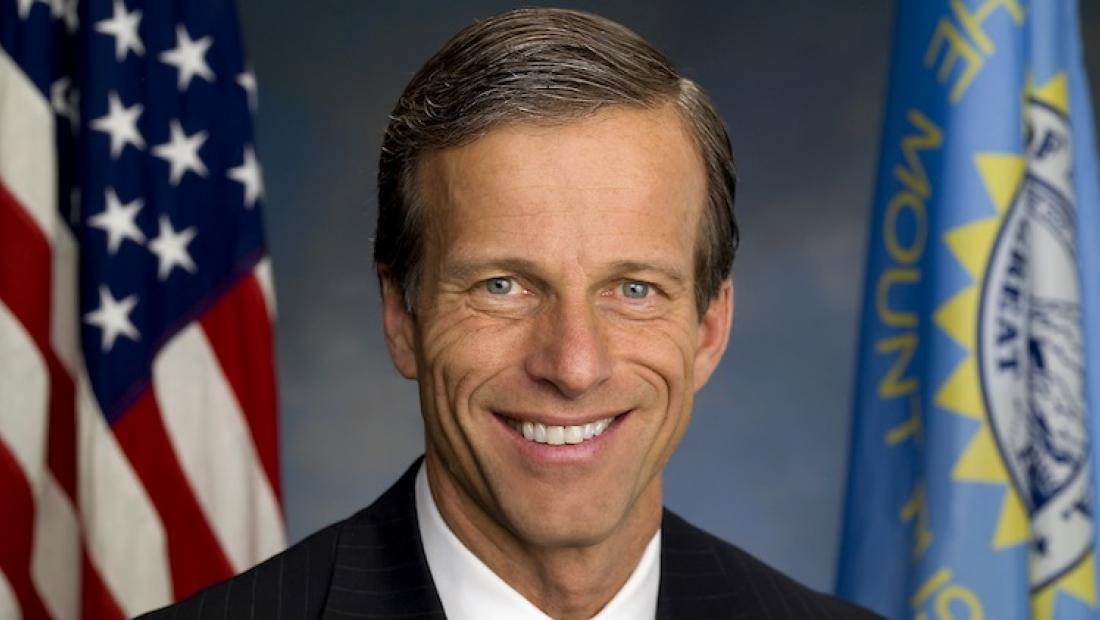Thune: Bipartisan Open Internet Legislation Is Key Goal

The smarter way to stay on top of broadcasting and cable industry. Sign up below
You are now subscribed
Your newsletter sign-up was successful
Senate Commerce Committee Chairman John Thune told a Washington policy crowd Jan. 23 that finding a bipartisan legislative solution to protecting an open internet is a priority for his committee, but that he is "not there yet."
Thune (R-S.D.) was outlining his tech agenda at the State of the Net Conference at the Newseum’s Knight Conference Center in Washington.
Thune said the only way to provide certainty on an open internet is for Congress to pass bipartisan legislation, and while he has said that has not happened yet, he added that a Republican FCC might inspire some of his Democratic colleagues to embrace the idea "that a bipartisan congressional solution was the beset possible outcome." He said he remains "committed to the cause."
Related: FCC’s Wheeler Makes Impassioned Plea for Title II
"We need clear and reasonable rules for the digital road that internet companies, broadband providers and end users can easily understand," he said. "complex and ambiguous regulations that shift with the political winds aren't in anyone's best interests," he said.
Republicans in Congress, and at the FCC, have argued that the FCC's general conduct standard for determining violations of its Open Internet order is too vague and that while the FCC under Tom Wheeler pledged not to use that Title II power to impose rates regs, the next chairman might not agree. That is unlikely now, however, given that the new chairman is the deregulatory-minded Ajit Pai, who voted against the FCC's Open Internet order and the Title II reclassification he also argued could be a way for the FCC to rate regulate.
He said his primary goals, in addition to a long-term solution for protecting an Open Internet, would be passing the MOBILE Now act (he expects to pass it once again in the committee this week), which promotes unlicensed spectrum; moving added legislation on broadband deployment (particularly in rural America) and spectrum policy, including making broadband an integral part of any larger infrastructure package, and working on an update and modernization of the FCC and communications laws.
The smarter way to stay on top of broadcasting and cable industry. Sign up below
"We have had many conversations about improving the agency. This year presents a real opportunity to turn those conversations into solutions,” he said, adding that he thought he could get FCC-modernization legislation through the Senate.
Thune's committee approved the MOBILE Now Act, but it got held up in a fight between Senate Majority Leader Mitch McConnell (R-Ky.) and then minority leader Harry Reid (D-Nev.) over the renomination of Jessica Rosenworcel to the FCC.
Thune gave a shout-out to companies who have managed to innovate and invest despite government regulations. "Most of the government policies dealing with video, wireless and internet platforms are written for a world where none of these things even existed. It is a testament to the ingenuity of the American businessperson and entrepreneur that they have been able to adapt and succeed with laws that are increasingly out of date."
Related: Can We Talk? FCC Asked to End Quiet Period
He said American companies and consumers deserve better, including by modernizing the laws. He said the FCC had been overregulating the internet and it was time to get back to "successful light-touch policies" rather than the "aggressively activist and partisan agenda that put government edicts ahead of real consumers desires…”
Thune said the marketplace, not the FCC, should be at the center of the debate over the functioning of digital networks and that consumers and job creators, not the government, should be the ones deciding about new tech, not the government.
On that point, he pointed to zero rating business plans by wireless companies, some of which have come under fire from the outgoing FCC. "They seem to think that being able to do more online with less money is a bad thing for consumers," saying consumers appeared to have drawn a different conclusion given the popularity of the plans.
He said that one takeaway from the recent election was that "the American people are tired of government bureaucrats trying to micromanage their lives."
Contributing editor John Eggerton has been an editor and/or writer on media regulation, legislation and policy for over four decades, including covering the FCC, FTC, Congress, the major media trade associations, and the federal courts. In addition to Multichannel News and Broadcasting + Cable, his work has appeared in Radio World, TV Technology, TV Fax, This Week in Consumer Electronics, Variety and the Encyclopedia Britannica.

